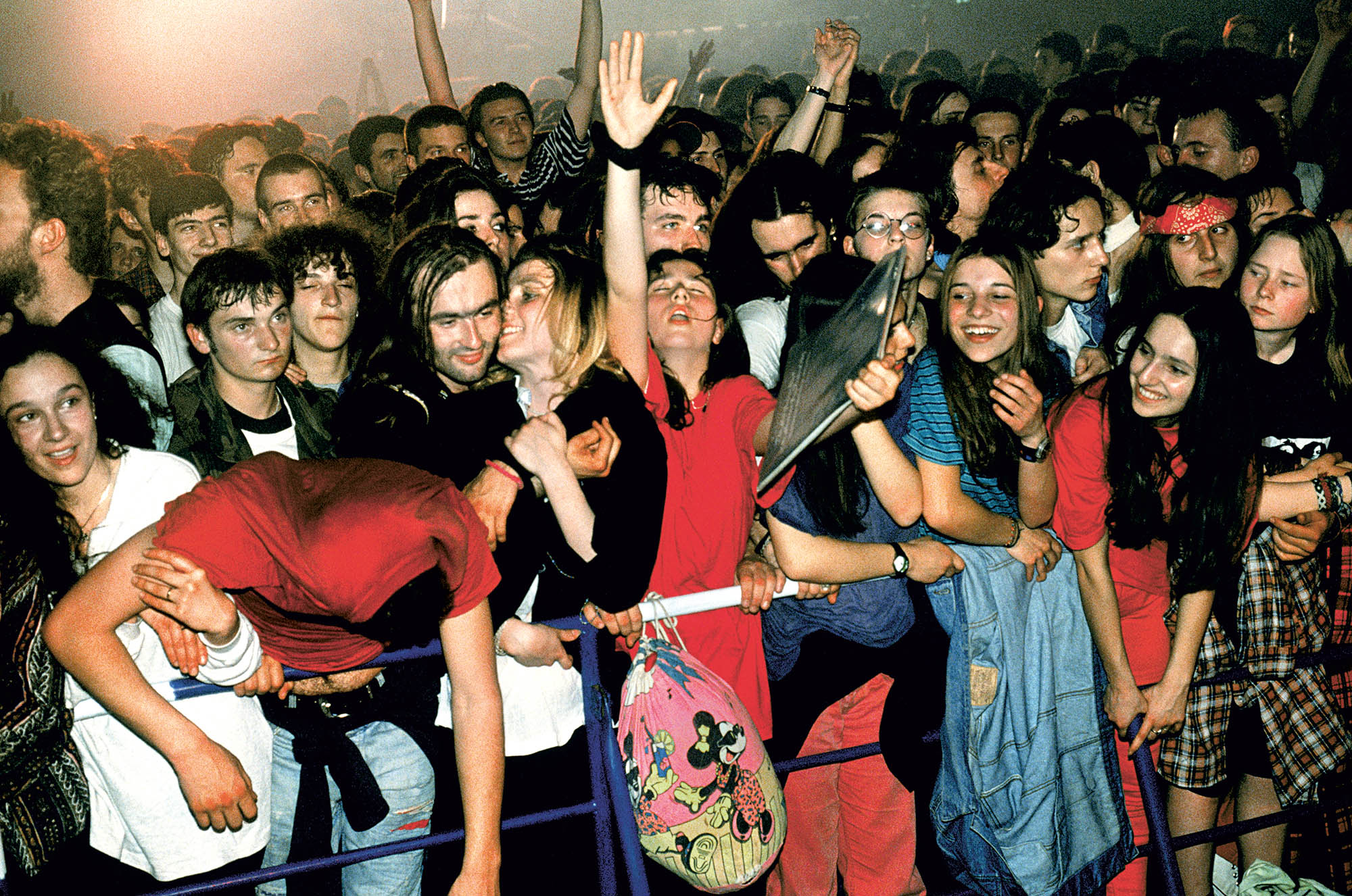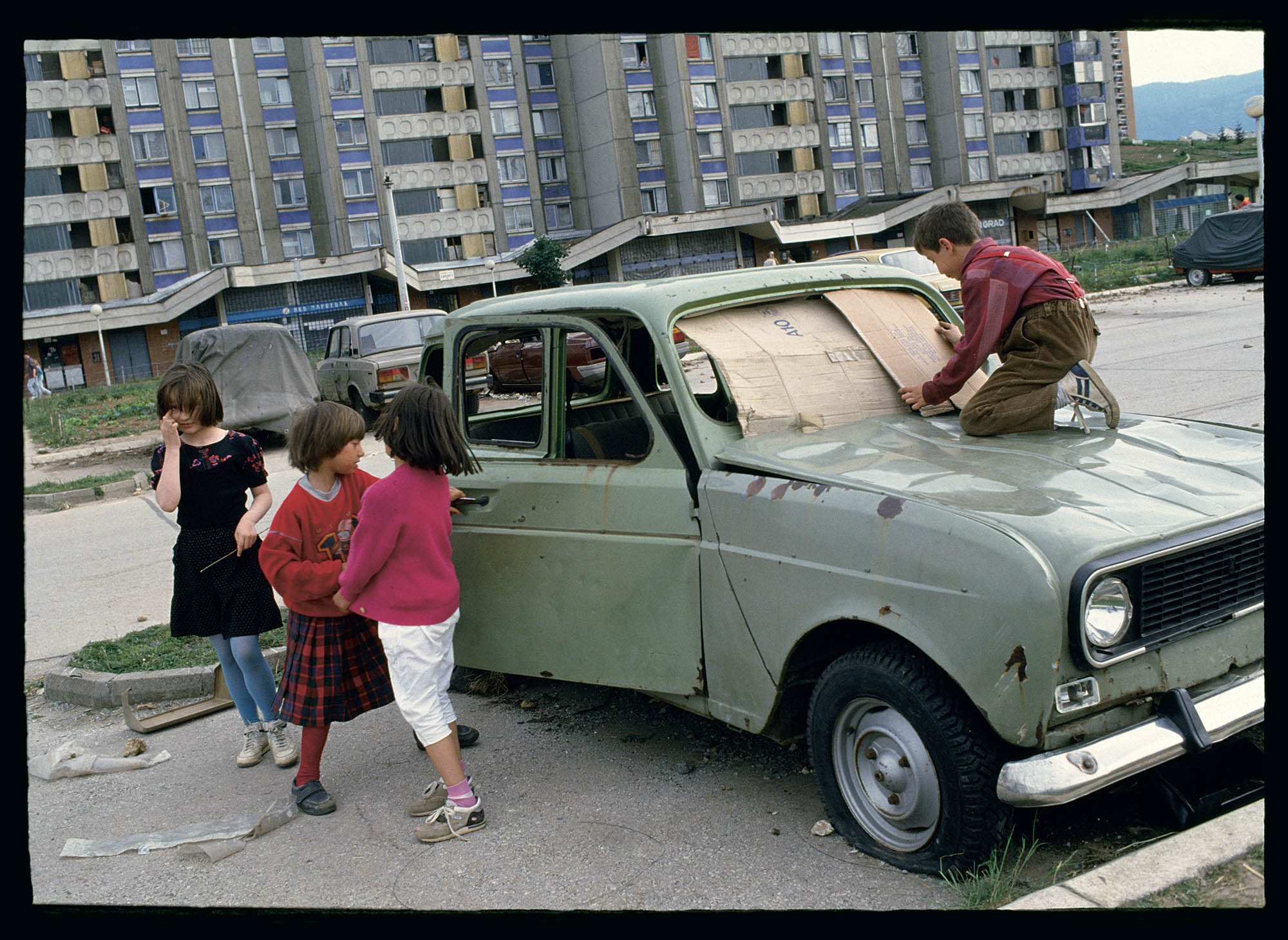Capturing conflict & resilience in Eastern Europe in the ‘90s
- Text by Isaac Muk
- Photography by Robin Graubard

Nearly three decades ago, with her New York newspaper on strike, photographer Robin Graubard found herself with a free afternoon. With the day off from covering court stories or shooting glitzy red carpet events, she took a stroll down to her local neighbourhood park on the east side of Manhattan – Ralph Bunche Park.
Due to its location opposite the United Nations headquarters, the park is often a site where demonstrators gather. On this occasion, a small group of women were protesting the war in Yugoslavia, and Graubard struck up a conversation with them.

© Robin Graubard 2022 courtesy Loose Joints
“I’d read a small article in the back page of a newspaper about what was going on in Yugoslavia, but there hadn’t been a lot of coverage,” she says. “And these women were really upset about what was going on and their relatives who were there in this war. I was kind of astonished that there was this war going on and nobody was paying attention to it.”
She quickly decided that she wouldn’t return to her day job, and booked flights to Prague in the newly-formed Czech Republic, before venturing further east into the Balkans – Yugoslavia, Albania, Croatia and beyond. Her soon-to-be-released debut photobook, Road to Nowhere, is a collection of her shots from the years she spent documenting the people and stories she encountered during her time in Eastern Europe in the early 1990s.

© Robin Graubard 2022 courtesy Loose Joints

© Robin Graubard 2022 courtesy Loose Joints
Shot in coloured film on Nikon FM2s, the photographs capture the grit, determination and humanity set in front of a backdrop of conflict and political instability. “Signs of war were everywhere,” she says. “The stores were completely empty, the money was worthless – people were just throwing money away, it was lining the streets.”
The Yugoslavian Wars were marred by nationalist divisions, ethnic tensions and genocide. Throwing herself fully into the conflict, Graubard found herself along the front lines of battle, in houses shielding persecuted Muslims and aboard humanitarian aid aeroplanes.

© Robin Graubard 2022 courtesy Loose Joints
One particularly terrifying moment came when she found herself low on money in Sarajevo, which at the time, was the front line of battle. She used the last of her cash to book a room in a Holiday Inn hotel. “When I got there, a bullet went over my head,” she recounts. “I didn’t quite know what it was when it was happening – it was just this sound. And the people behind the desk were just very matter of fact about it.”
Despite this, Graubard says that she found herself “calmer than I’ve ever been in my life”. She says: “It was so scary that the only thing you could do was put one foot in front of the other. Every step could have been your last so you concentrated on each minute, each second.”

© Robin Graubard 2022 courtesy Loose Joints
Graubard’s work was important in spreading awareness about the war to the west. Returning to New York, her shots were published in widely read magazines including Time and Newsweek. One day, while making copies of a photograph of Serbian soldiers she had taken on the front line, she received a tap on the shoulder.
A man asked: “Where did you get that picture?”
“I took the picture,” she replied.
“Well they just held it up at a UN meeting,” said the man.

© Robin Graubard 2022 courtesy Loose Joints

© Robin Graubard 2022 courtesy Loose Joints
Graubard explains that while publications were primarily interested in pictures of battle and the military, her goal when was to photograph women and children in Eastern Europe. “I wanted to photograph how they were affected by [war].”
Road to Nowhere brings these photographs to light, sharing the stories of ordinary people caught up in war. They feel particularly timely and relevant with the ongoing war in Ukraine.
“I can’t begin to tell you how I feel [about Ukraine],” she says. “But I think the reporters and photographers are doing an amazing job of reporting what’s going on there – they’re incredibly, incredibly brave.”

© Robin Graubard 2022 courtesy Loose Joints

© Robin Graubard 2022 courtesy Loose Joints

© Robin Graubard 2022 courtesy Loose Joints
Road to Nowhere by Robin Graubard is published by Loose Joints.
Follow Isaac Muk on Twitter.
Enjoyed this article? Like Huck on Facebook or follow us on Twitter and Instagram.
Latest on Huck

Is the UK ready for a Kabaddi boom?
Kabaddi, Kabaddi, Kabaddi — Watched by over 280 million in India, the breathless contact sport has repeatedly tried to grip British viewers. Ahead of the Kabaddi World Cup being held in Wolverhampton this month, Kyle MacNeill speaks to the gamechangers laying the groundwork for a grassroots scene.
Written by: Kyle MacNeill

One photographer’s search for her long lost father
Decades apart — Moving to Southern California as a young child, Diana Markosian’s family was torn apart. Finding him years later, her new photobook explores grief, loss and connection.
Written by: Miss Rosen

As DOGE stutters, all that remains is cringe
Department of Gargantuan Egos — With tensions splintering the American right and contemporary rap’s biggest feud continuing to make headlines, newsletter columnist Emma Garland explains how fragile male egos stand at the core of it all.
Written by: Emma Garland

Photo essay special: Despite pre-Carnival anxiety, Mardi Gras 2025 was a joyous release for New Orleans
A city celebrates — Following a horrific New Year’s Day terror attack and forecasts for extreme weather, the Louisiana city’s marquee celebration was pre-marked with doubt. But the festival found a city in a jubilant mood, with TBow Bowden there to capture it.
Written by: Isaac Muk

From his skating past to sculpting present, Arran Gregory revels in the organic
Sensing Earth Space — Having risen to prominence as an affiliate of Wayward Gallery and Slam City Skates, the shredder turned artist creates unique, temporal pieces out of earthly materials. Dorrell Merritt caught up with him to find out more about his creative process.
Written by: Dorrell Merritt

In Bristol, pub singers are keeping an age-old tradition alive
Ballads, backing tracks, beers — Bar closures, karaoke and jukeboxes have eroded a form of live music that was once an evening staple, but on the fringes of the southwest’s biggest city, a committed circuit remains.
Written by: Fred Dodgson